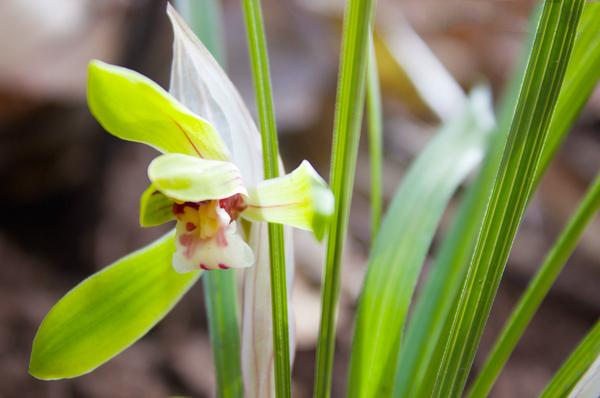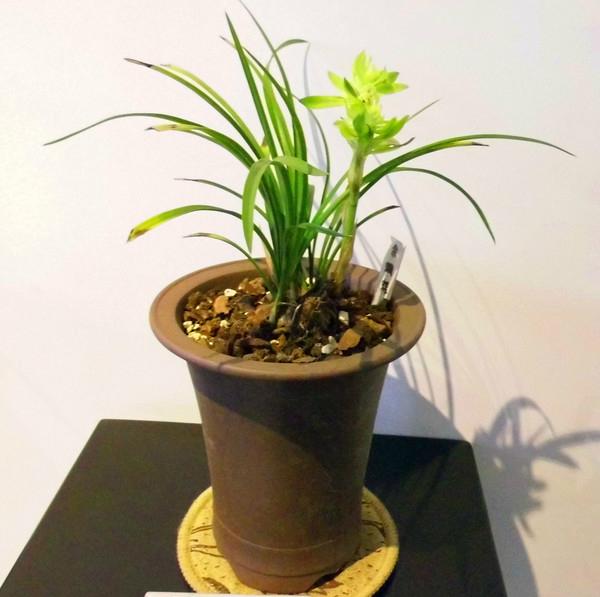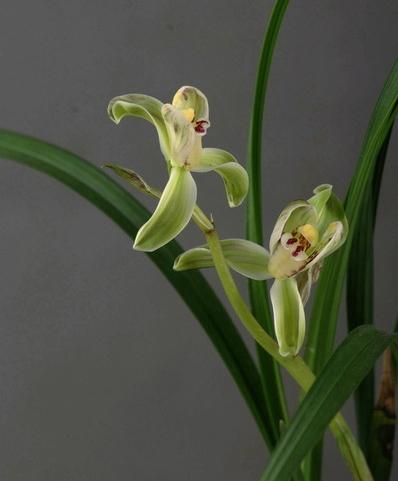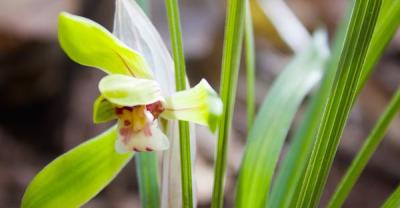What aspects should be paid attention to when potted orchids are cultivated on the balcony?
Orchids are precious and magical herbs. since ancient times, orchids have been regarded as a symbol of nobility, elegance and unswerving chastity. Orchids belong to semi-negative plants, rely on orchid roots to produce orchids for growth, we can only understand the growth habits of orchids to raise orchids. Orchids must be in fresh air to carry out normal respiration and photosynthesis, promote metabolism, enhance the absorption and transport of water and nutrients, as well as the production and accumulation of nutrients, reduce diseases and insect pests, and make orchid plants thrive. So potted orchids are raised on the balcony, how to deal with these relationships?

Basin soil
Traditional orchid plants are generally humic soil owners, some use sand, and some use pebbles. But everyone knows that orchids are a little delicate, and if you want to raise orchids well, the choice of soil is very important. The potted soil of orchids is required to be dry and breathable. The best way to cultivate orchids on the balcony is 50% rotten sawdust or waste sawdust from edible fungi plus 50% loam. This kind of soil has many gaps, good air permeability, smooth drainage and will not rot roots. At the same time, it also has a certain water retention capacity, which provides favorable conditions for the growth of orchids.

Ventilation
Orchids need good ventilation to grow. Indoor gas composition is complex, affecting the growth and development of orchids, easy to be infected with mold, rot, and even be poisoned. Ventilation can provide enough oxygen for orchids and carbon dioxide for light and action, as well as reduce diseases and insect pests. Therefore, the balcony orchid culture should often open windows for ventilation.

Humidity
Wild orchids, native to mountain mixed forests, not only have rain and fog, dew moisture, but also rich moisture transpiration on the ground, growing in a humid environment for a long time. Orchids generally need relative humidity of more than 50% to 80%. The balcony environment is difficult to achieve the suitable humidity for orchid growth. Under the orchid frame, the cofferdam can store water and set up water trays. This can not only effectively increase the air humidity, but also prevent the orchid leaves from rotting due to excessive humidity. You can also use artificial water spraying, or use humidifiers to create favorable environmental humidity for orchids.

Light
Although orchids are shade-tolerant plants, the effect of light on the growth of orchids is also extremely important, which is the external factor that determines the exuberant growth of orchids. Light is not only a source of energy for orchids to produce nutrients, but also a necessary condition for the formation of chlorophyll. The flower bud formation of orchids also needs sunshine. Accordingly, from May to October should give balcony orchid undertakes sunshade. In the vigorous summer, strong direct light will still burn some leaves, causing the leaves to turn brown, even scorched yellow and withered, so it is best to cover 70% of the sun. 80%.
- Prev

The quality of cultured pearls is also very high.
Pearl farms in northern Australia ushered in a bumper harvest in 2017, and one of them, CygnetBay, reaped two rare days.
- Next

Six culture models of freshwater crayfish for farmers' reference!
Several culture modes of crayfish are summarized and introduced as follows for reference. The main culture mode of crayfish refers to crayfish culture in the pond.
Related
- On the eggshell is a badge full of pride. British Poultry Egg Market and Consumer observation
- British study: 72% of Britons are willing to buy native eggs raised by insects
- Guidelines for friendly egg production revised the increase of space in chicken sheds can not be forced to change feathers and lay eggs.
- Risk of delay in customs clearance Australia suspends lobster exports to China
- Pig semen-the Vector of virus Transmission (4)
- Pig semen-the Vector of virus Transmission (3)
- Five common causes of difficult control of classical swine fever in clinic and their countermeasures
- Foot-and-mouth disease is the most effective way to prevent it!
- PED is the number one killer of piglets and has to be guarded against in autumn and winter.
- What is "yellow fat pig"? Have you ever heard the pig collector talk about "yellow fat pig"?

